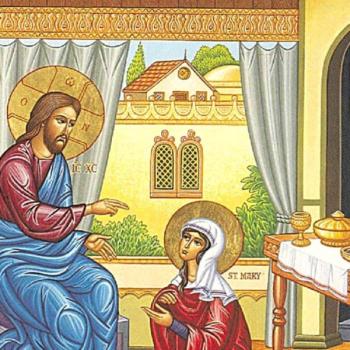Statistics cite an overwhelming 88% of Americans celebrate Christmas. More than two billion people worldwide consider it an essential holiday. As people shop, prepare for family visits, and spend excessive amounts of money, it can feel like Christmas is an annual requirement. Those who don’t jump into the holiday with joy can feel left out, even overshadowed. With pressures to participate and a near-societal expectation to engage in Christmas in some form, is Christmas a required holiday?
Most who celebrate this holiday don’t know much about it. They may cite it is a Christian feast, all about Christ, or all about family, but they probably don’t know much about its historical origins. Here we will look at ten facts about Christmas, gathered for those who aren’t much on the holiday.

1. Jesus was not born on December 25
The truth is, we don’t know when Jesus was born, neither in month, day, or exact year. Jesus’ birthday has been observed in every month of the Julian calendar throughout history. Christmas, as we understand it, came to be in the fourth century under the Emperor Constantine. Winter Solstice festivals were staples of the ancient pagan world, celebrated under different names, the most familiar to us being Yule. December 25 was the start of Saturnalia, the Roman feast of the Invincible Sun. Many of its traditions sound familiar: gift-giving, large parties, spending money, decorating with evergreen, and feasts. So how did Saturnalia turn into Christmas?
When Christianity became legal in the Roman Empire, the Emperor had interest in building his army through the church. He felt the best way to make Christianity appealing to pagans was to incorporate Christian themes into pagan culture. As part of the yearly calendar, observing Christmas on December 25 became mandatory. Thus, Jesus’ birth became associated with Saturnalia, turning it into Christmas day.
2. Not all churches acknowledge Christ’s birth on December 25
Contrary to popular belief, not every church acknowledges Christ’ birth on December 25. Several Eastern Orthodox churches celebrate the Feast of the Nativity on January 7. A small church in Rochester, New York celebrates Christmas on March 24 or 25. The Puritans forbid church observances of Christmas. Likewise, Quakers, the Church of Christ, Independent Baptists, and many Oneness Penetcostal groups also do not celebrate Christmas at all. They are joined by Restorationist groups, such as Jehovah’s Witnesses, Armstrongism, the Church of God 7th Day, Sacred Name and Hebrew Roots groups, and many atheists and agnostics. While it’s tempting to assume “everyone celebrates Christmas,” this is not the case.
3. The early church did not celebrate Christmas
We have no record – not in the Bible, nor in apocryphal records – that Christmas was celebrated by the early church. In fact, we have evidence to the contrary: the birth of Christ was considered a secret. Herod’s personal crusade to kill all infant boys required his birth to be secretive. This would follow Christ throughout His life, as discovering He survived Herod’s mandate could cause ire long before He fulfilled His destiny.
By the time Jesus was an adult and in ministry, nobody probably knew when it was. Remember, this is from a time long before birth certificates and health records. Jews in first century Palestine did not celebrate birthdays. Jesus’ birth was known only to a few when it happened; even then, everyone worked hard to keep His presence quiet for fear He might be killed. Christmas was not a facet of the New Testament church (or the church for several generations thereafter).
4. Neither Biblical nor apocryphal records support our Christmas traditions
We’ve already established Jesus wasn’t born on December 25. This is not the only detail of Christmas that raises questions. For one, much of the imagery of Christmas – such as evergreen, gift-giving, feasting, and caroling – are crossovers from pagan festivals. Beyond this, some of the religious images are also spurious. For example, there was probably no “drummer boy” at the manger. There were no bells that played at the time of Christ’s birth. The animals weren’t suddenly able to speak. And there’s no record that links the visit of the Wise Men with the birth of Christ. The Bible states that Jesus was a “child” in a “house” when they visited Him; not a visit to the manger:
When they saw the star, they were overjoyed. On coming to the house, they saw the child with his mother Mary, and they bowed down and worshiped Him. Then they opened their treasures and presented Him with gifts of gold, frankincense and myrrh. And having been warned in a dream not to go back to Herod, they returned to their country by another route. (Matthew 2:10-12, NIV)
This makes more sense, as land travel took a long…long…long…time. It most likely took them years to arrive at their location.
Likewise, we have no number of “Wise Men” in Scripture. Most assume there were three, but this has not always been the case. Some believe there were only two. Eastern Christians believe there were twelve Magi. Various traditions assign different names, none of which agree. A fun fact: Different ethnic groups claim the Magi as descendants. The Keraites claimed to be descendants of the Magi, while Chinese Christians believe at least one of the Magi was from China!
5. Nothing about the birth of Christ was about “family”
The birth of Christ occurred when Mary and Joseph were a long way from home. The story says they were en route, due to a census:
In those days Caesar Augustus issued a decree that a census should be taken of the entire Roman world…So Joseph also went up from the town of Nazareth in Galilee to Judea, to Bethlehem the town of David, because he belonged to the house and line of David. He went there to register with Mary, who was pledged to be married to him and was expecting a child. While they were there, the time came for the baby to be born… (Luke 2:1,4-6, NIV)
Mary and Joseph weren’t surrounded by families. They weren’t around anyone they knew. They were on their own, trying to survive amidst a harsh and uncomfortable world.
The family images we see at Christmastime are a marketing gimmick. They exist so we will spend money on the right food, gifts, and ideals to make it happen. These messages, both harmful and hurtful, don’t reflect an accurate representation of Christ’s birth. They also provide a lead-in to the next point.
6. For many, Christmas hurts
While it was once believed that suicide rates were highest between Christmas and New Year’s, this is false. This doesn’t change the fact, however, that there are many who don’t find Christmastime to be joyous. Whether due to loss of a friend or family member, familial rejection, family alienation, distance, or lack of funds, there are many who find this a difficult and empty time of year. It reminds them of loss and pain, and what they don’t have. The marketing gimmicks I mentioned earlier make people feel as if there is something wrong with them because they don’t have a picture-perfect holiday season. Such individuals don’t want a Christmas card or to hear another Christmas song. They need a hug, to know someone cares for them, and that they aren’t lost in the Christmas shuffle.
7. The “Merry Christmas”/”Happy Holidays” battle is ridiculous
I understand that the world, as we understand it, is changing. I also understand this causes many to have conflicting feelings about society in general. That being said, there has never, at any point in time, been a prohibition on the phrase “Merry Christmas” in American culture. The way Christmas has become a political battle (perhaps we could argue it has always been political) is a turnoff for many, and I don’t have a good argument against it.
For one, the argument against saying “Merry Christmas” vs. “Happy Holidays” is invalid. If someone chooses to acknowledge the number of winter holidays outside of Christmas, they are not hurting anyone. Second, the hostility that exists over this issue creates tension and discomfort when it isn’t necessary. Rather than creating a respectful witness, it seems as if Christmas is mandatory, even for those who don’t observe it. As can be seen above, there are a number of reasons why someone may not observe Christmas, whether professing a belief in Christ, or not.
In a larger way, however, I feel Christians need to stop playing “major character” and remember…not everything in this world is about us. I grew up in a small community with a thriving Conservative Jewish congregation. I went to one church, with one set of Christmas traditions, while friends went to other churches with different observances. Some kids weren’t Christians. There’s an entire world of belief outside of what we might hold near and dear, and there’s nothing wrong with having respect for those who feel differently about matters. Saying “Happy Holidays” takes nothing away from Christ (who wasn’t even born at this time of year).
8. The life of Jesus matters every day of the year
It’s not uncommon to hear things like, “Jesus is the reason for the season!” around this time of year. It sounds good, even if it’s not accurate (as the Solstice is the reason for the season). I understand the reason why people say it, but sometimes I think we forget that Jesus is the reason for every season, in every year, and every time of our lives. This is true of the periods we like as well as the ones we don’t. There shouldn’t be a day of the year when we aren’t grateful that Jesus was born, rose from the dead, and as as alive with us today as on that day, thousands of years ago.
For this sentiment, I love Isaac Watts’ hymn, When I Survey The Wondrous Cross:
Were the whole realm of nature mine,
That were an offering far too small;
Love so amazing, so divine,
Demands my soul, my life, my all.
Every day of the year, Jesus loves me. For this, I give my soul, my life, and my all. He is the “I AM,” not the “I Christmas.” There’s nothing wrong with seeing Christ throughout life, and therefore, not fussing that much come Christmas.
Just remember…
If Christmas isn’t your speed, don’t sweat it. There’s nothing wrong with feeling like Christmas isn’t for you. It doesn’t make you a bad Christian, just someone who sees things in an unconventional manner. Jesus was unconventional, too – so you’re in good company! There are many reasons – such as the ones outlined above – why Christmas may not be someone’s favorite time of year. I’ll also say, one day should not hinge around so much of our identity as believers. Every day we have the chance to do something good for someone else, visit someone, buy or give a gift, or do something that matters. The Bible tells us they will know we are of Christ if we love. Thus, we can all work toward loving others, no matter what day of the year it might be.














